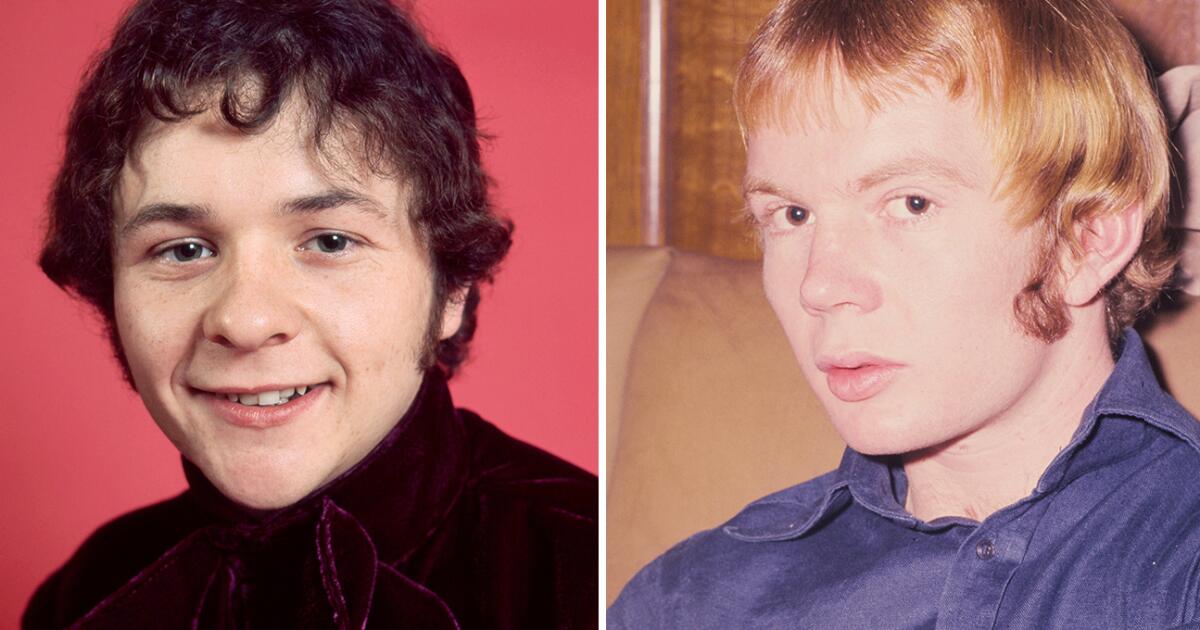Former Bee Gees drummers Colin “Smiley” Petersen and Dennis Bryon, who played with the quintessential disco group in the 1960s and 1970s, respectively, have died within days of each other.
The death of Petersen, the bestselling group’s original drummer, was announced Monday in a post on the Best of the Bee Gees Facebook page.
“It is with a heavy heart we announce the passing of our dear friend Colin ‘Smiley’ Petersen,” the post said. “He enriched our lives and bound our group with love, care and respect. Not sure how we can go on without his glowing smile and deep friendship. We love you Col. Rest in Peace.”
Evan Webster and Sue Camilleri, who worked with Petersen on the tribute show “The Best of the Bee Gees” told the New York Times that Petersen died from a fall. He was 78.
Bryon, who served as the “Saturday Night Fever” band’s drummer starting in 1973 and through the height of its disco renaissance, died at 76. The Bee Gees’ former keyboardist Blue Weaver, who also played with Bryon in the Welsh rock group Amen Corner, confirmed his death last Thursday on Facebook. No cause or date of death were provided.
“I am lost for words at the moment…,” Weaver wrote, noting that Bryon’s family had asked him to notify friends and fans of the drummer’s death. “This was such a shock. Dennis has been my friend, since we were in our first band together age 15. His great drumming will always Stay Alive.”
Guitarist Andy Fairweather Low, who also played with Bryon in Amen Corner, remembered his late bandmate as a “fabulous drummer and friend.”
“I was lucky he joined Amen Corner. He was with us the whole journey,” the musician wrote Thursday on Facebook, sharing a photo with Bryon and their bandmates. “[H]e made the best curries..was a fabulous friend. I was lucky to have know [sic] him. He went on to greater things with the BG’s.”
Petersen, who earned his nickname after starring as youngster Smiley Greevins in the classic 1956 Australian film “Smiley,” went to the same school as Barry Gibb and his twin brothers, Maurice and Robin Gibb. Although they weren’t enrolled in school at the same time, the brothers connected with Petersen before the British natives left Sydney and again after Petersen moved to the U.K. to pursue acting full time in the 1960s.
The Gibbs had been performing together since 1958, forming the group when they lived in Brisbane, Australia, when Barry was 12 and the twins were 9. (Barry Gibb, 78, is the only surviving family member; Maurice Gibb died in 2003 at 53 and Robin died in 2012 at 62. Younger brother Andy Gibb, a teen idol and solo artist, died in 1988 at age 30.)
Petersen and Australian guitarist Vince Melouney joined the Brothers Gibb — who later shortened their stage name to the Bee Gees — in 1966 and 1967, respectively, and Petersen contributed to four of the band’s albums, notably to the hits “Massachusetts,” “To Love Somebody” and “Words.”
The original drummer remained with the group until 1969. Petersen went on to form the Humpy Bong band with former Bee Gees member Jonathan Kelly and British rocker Tim Staffell, then managed Kelly as a solo artist in the 1970s.
Bryon, who was born in Cardiff, Wales, began drumming when he was 14, joining Weaver and famed guitarist Andy Fairweather Low in Amen Corner before auditioning for the Bee Gees. The percussionist joined the group in 1973 and played on nine of the band’s No. 1 records and on some of its most memorable songs, including “Nights on Broadway,” “You Should Be Dancin’,” “How Deep Is Your Love,” “Stayin’ Alive,” “Night Fever” and “More Than a Woman.”
Bryon continued to do studio session work and perform live in his later years and moved to Nashville. He also wrote a memoir, “You Should Be Dancing,” in 2015 and performed in the instrumental duo Strong & Bryon. According to his website, he and the Beatles’ Ringo Starr are the only drummers in history to have had five songs on Billboard’s Top 10 chart simultaneously.
By the time Bryon joined the Bee Gees, their popularity — and that of the disco genre — exploded when the group’s rhythmic harmonies were featured in the 1977 film “Saturday Night Fever,” whose No. 1 soundtrack earned the Bee Gees four Grammy Awards including album of the year. The band earned 30 Top 40 hits in its lifetime, with the Recording Academy bestowing the Grammy Legend Award in 2003 and a Lifetime Achievement Award in 2015. The group was was inducted into the Rock and Roll Hall of Fame in 1997.
